A project with the aim to send disposable cameras around the world in order to connect communities and encourage self creation through first person perspective storytelling, Goal Click is bringing together people through football with beautiful analogue photography.
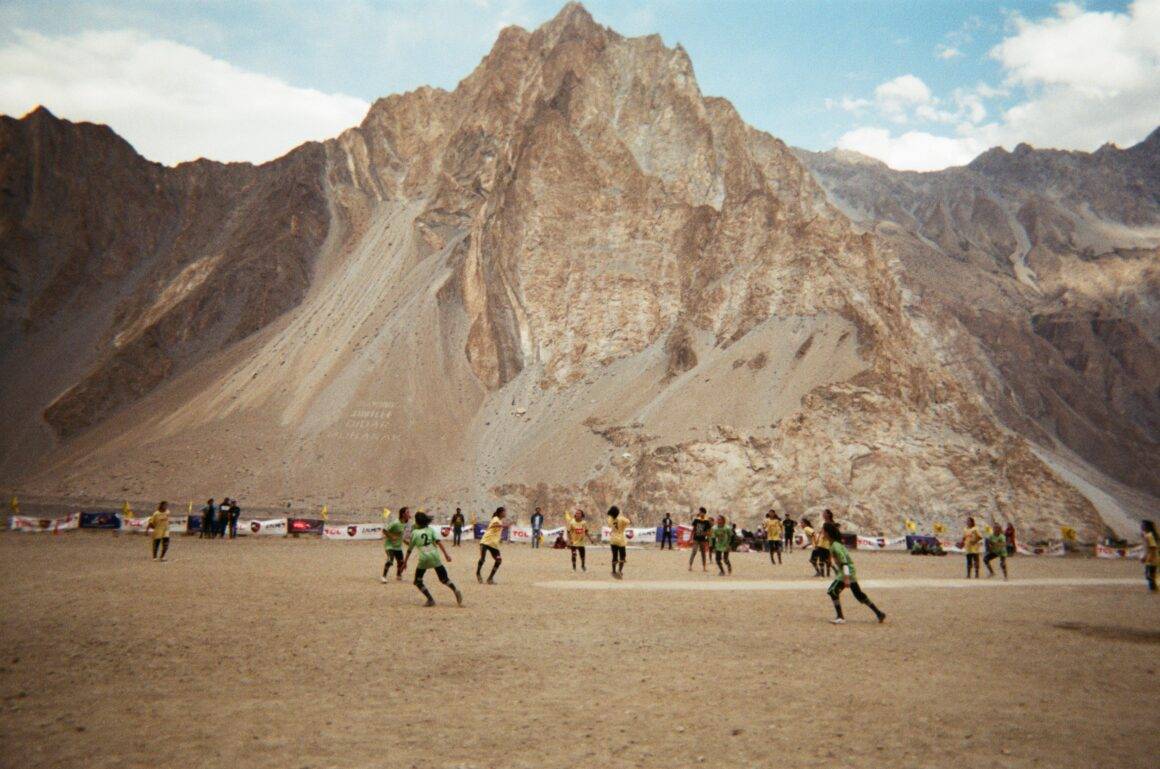
Goal Click: A Tool for Social Good
By Matthew Barrett
Initiated in 2013, Goal Click founders Matthew Barrett and Ed Jones launched the project in order to allow people to tell their own stories, capture their communities and photograph their country through the lens of football for us to enjoy and we are captivated.
We caught up with Matthew to find out why providing the platform for communities is so important, how the current cultural climate needs the initiative and some of the best stories from the past seven years with Goal Click.
When and how did the initial idea for Goal Click come about?
The initial idea for Goal Click came in 2013, through a conversation with my co-Founder Ed Jones. We worked together the time and it was a year before the 2014 World Cup in Brazil. Ever since my university studies, I have always looked for ways to tell stories about the world, societies, and people through sport and specifically football. Ed had a big passion for analogue photography and suggested giving football fans disposable cameras for the World Cup. This combination created the (slightly crazy) idea of a global quest to find people from every country in the world to tell stories of their lives and communities through football – all using disposable analogue cameras! We launched in 2014 and received our first camera back from Sierra Leone in August 2014, where we collaborated with SLASA, the national amputee football association.
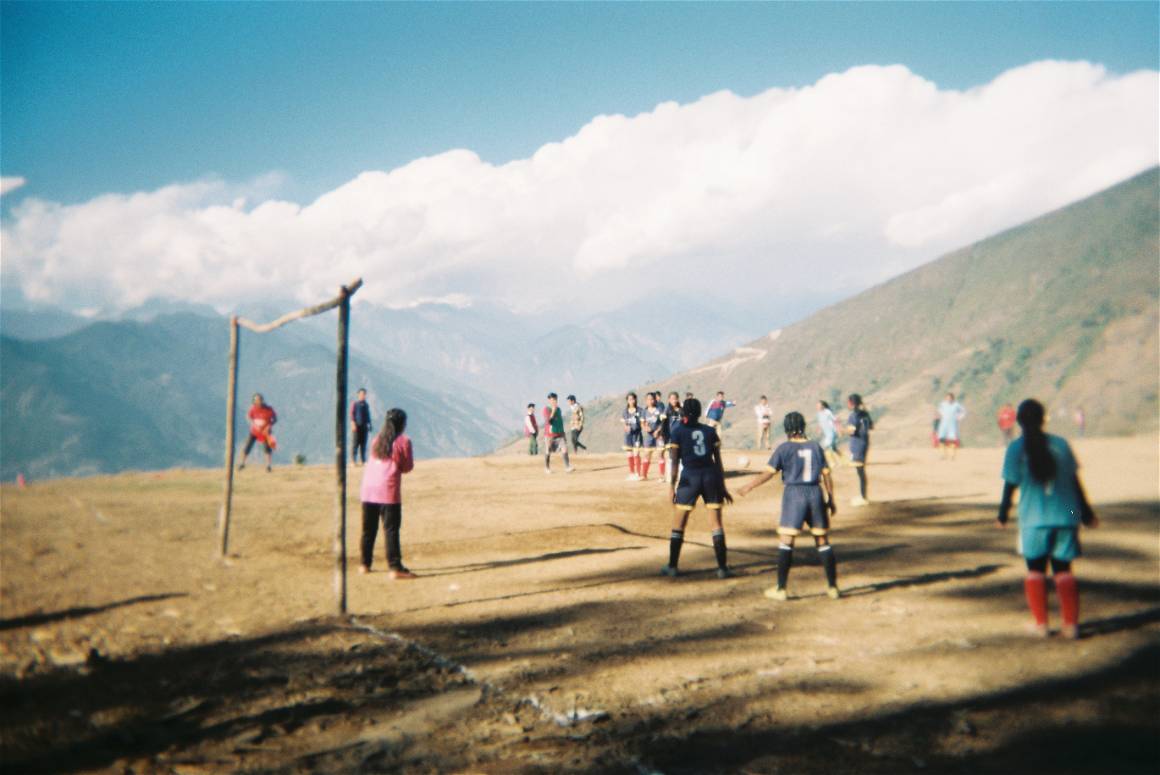
How did it grow from the initial idea finding someone in every country to send an analogue camera to, to what we know as Goal Click today?
The growth of Goal Click has been very organic and natural, as we uncovered more and more compelling stories from around the world. Whilst we are now telling stories through a variety of ways (photography, written, audio, video, and exhibitions), this is all based upon the premise of first-person perspective storytelling.
A key moment for the development of Goal Click was the creation of our first exhibition, which took place in June 2016 in London (during Euro 2016). We did this in partnership with adidas, which was a major endorsement of our project. Most importantly, we also created a specific London-based storytelling series in collaboration with adidas, finding Londoners to tell stories of London football culture and their football lives. This created the sustainable model for Goal Click going forward.
As a social business, we work with partners – brands, clubs, federations, tournaments, NGOs – to create storytelling series based on a specific subject such as a city, country, tournament, initiative or issue in football, from Russia and Qatar to the UEFA Women’s Champions League and New York City Soccer Initiative. These series ultimately support all the other work we do, which is often focused on development and football for social good. In the past three years we have been able to partner with many leading organisations, such as UEFA, FIFA, COPA90, NYCFC, Qatar 2022, and UNHCR, The UN Refugee Agency.
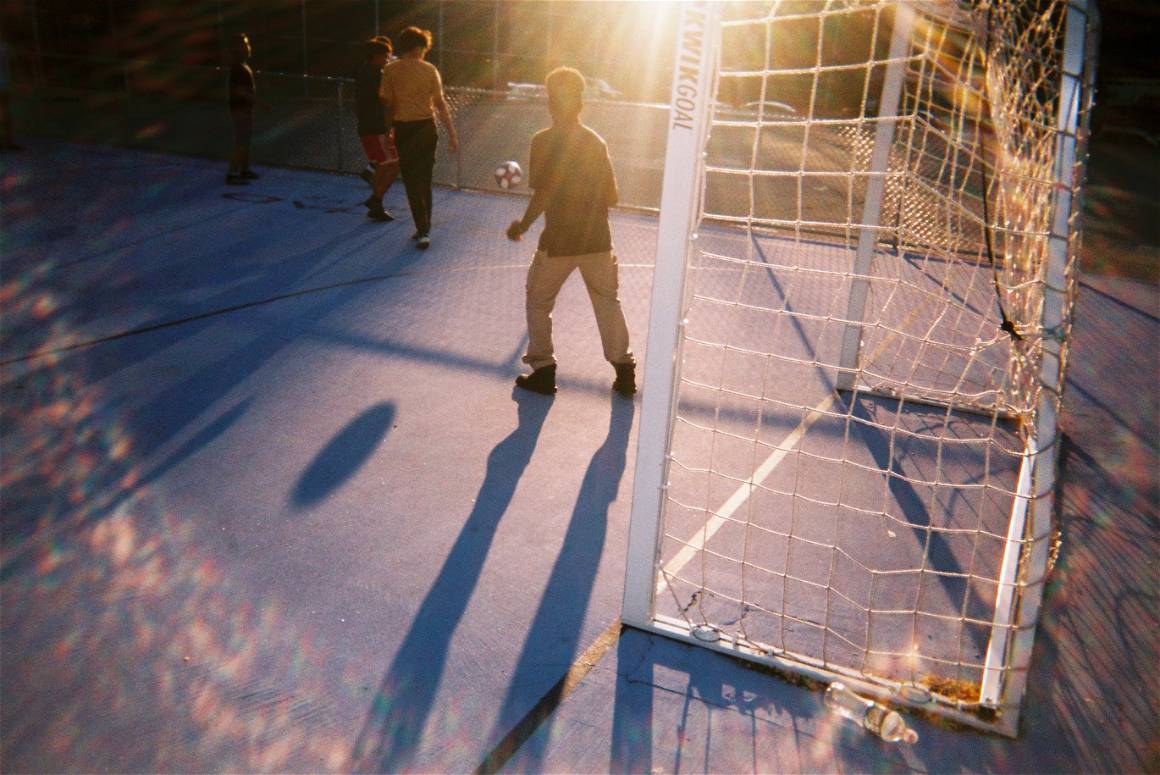
Why do you think Goal Click resonates so well globally?
The inspiration for starting Goal Click was to tell stories that help people understand the world and each other through the common global language of football. Football is truly universal and can be found in every corner of the planet. Framing (often difficult) subjects through football allows people to understand someone else’s story and culture in a way that might not otherwise be possible. In fact, they may not have been interested otherwise.
We felt there were so many people and stories from around the world that were not being heard. We wanted Goal Click to be a platform for this. Goal Click stories resonate with people because the game is familiar, but the context can be completely alien and intriguing. We try to keep the stories approachable and simple, yet raw and powerful. The stories give people a realistic look into lives and communities that they previously would struggle to understand, experience or identify with.
Why, in your opinion, is Goal Click necessary in this cultural climate?
The democratisation and diversification of stories and storytellers is a cultural reality of our modern world – and is long overdue. The diversity of our storytellers was important from the very start of Goal Click – male and female; young and old; professional athlete, amateur player, coach, football fan, or journalist; from the grassroots to the elite.
Now more than ever is a time to hear the voices and see the perspectives of the marginalised and dispossessed around the world. From Syrian refugees in Jordan and Genocide survivors in Rwanda to women breaking cultural and social barriers in Pakistan, India and Nepal, Goal Click is a platform for voices which are mostly unheard and silenced. Their photos and stories aim to capture the realities of their lives and communities from their own perspective, using football as the common factor.
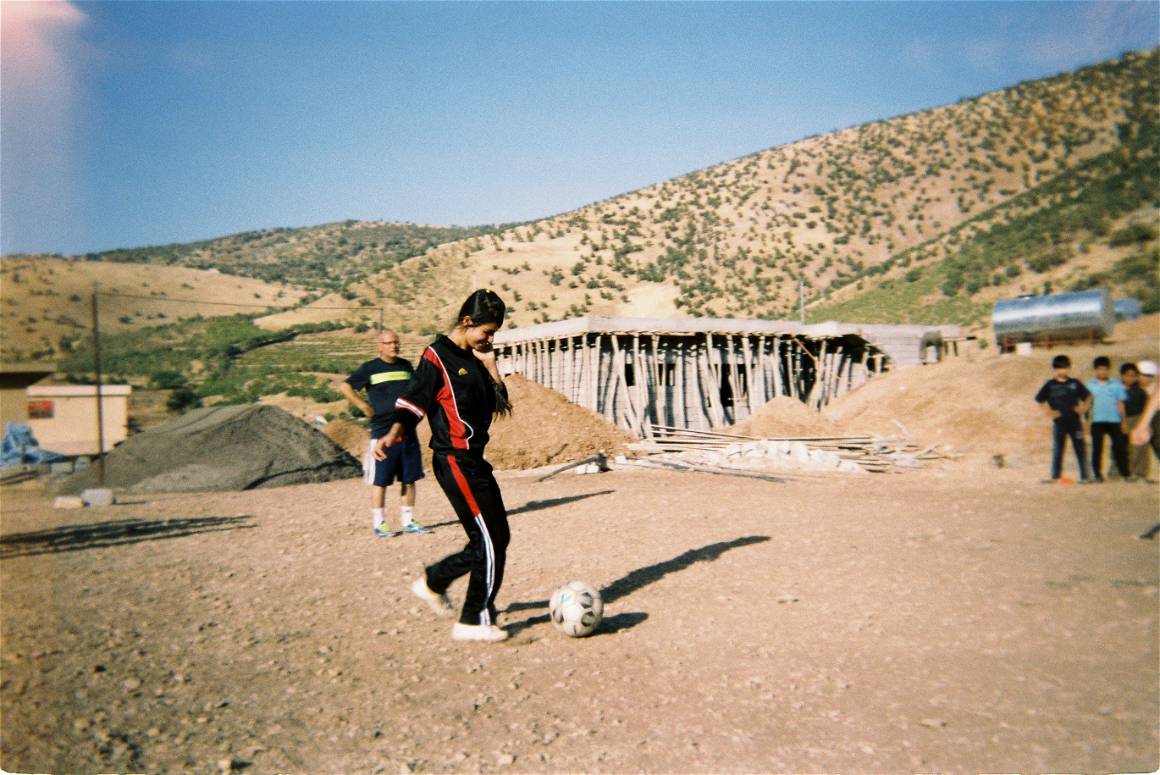
Aside from football, you have previously said that one of the core principles of Goal Click is ‘self creation’. Why do you think this of key importance?
Goal Click is completely focused on first person perspective storytelling, meaning we give people the full power, control and freedom to tell their own story and show what football means to them.
It is a core principle of Goal Click that our storytellers take the photos and write the stories themselves. We want Goal Click to give the “insider” view from within teams and communities. Many excellent photographers, filmmakers and journalists do important and impactful work as “outsiders” looking in. We provide a different perspective, giving the “subject” the chance to be the “storyteller”.
We believe that the intimacy and rawness of many of our photos and stories could only be created by people from those teams and communities. This can apply at both the grassroots and elite level, as shown by our global women’s football series ahead of the 2019 Women’s World Cup. From Sam Mewis capturing her US Women’s National Team teammates Rose Lavelle and Alex Morgan in an ice bath to Lucy Bronze taking us inside the Lyon changing room, the self-created nature of the stories was totally authentic and powerful.
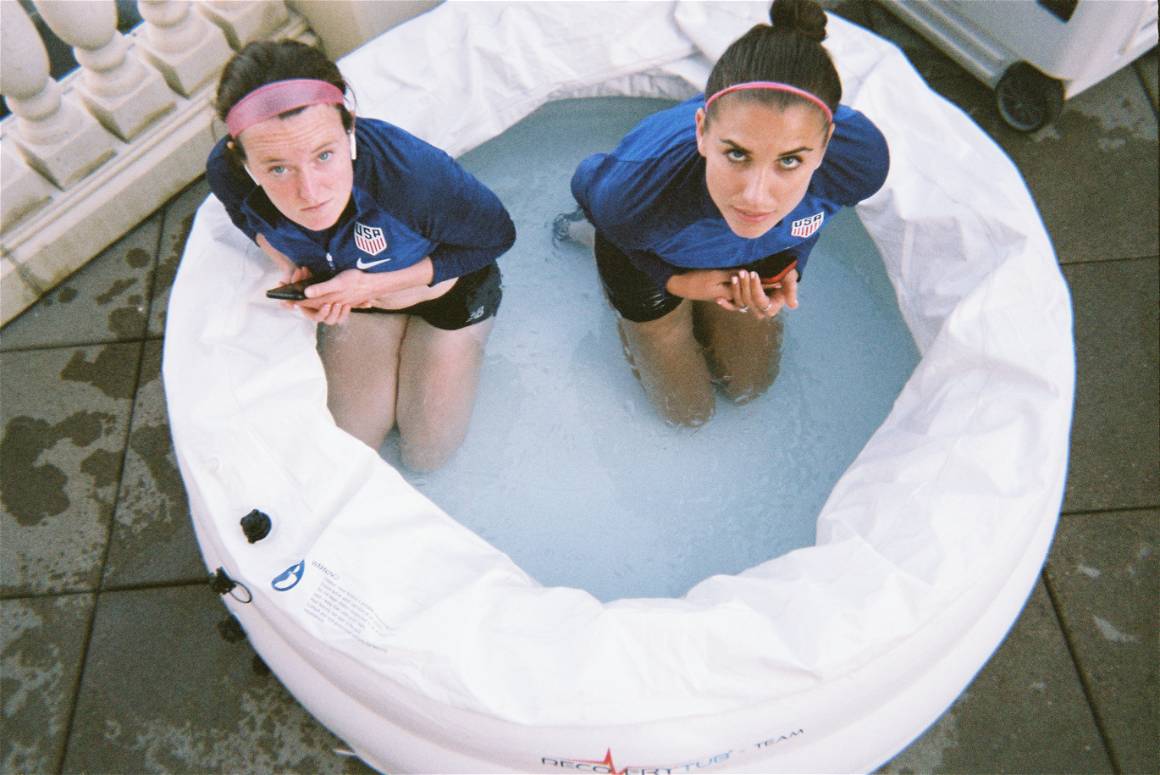
How are the photographers/ partners selected? I read that your perspective is equality. Can you expand on this?
Goal Click started life as a crowdsourced project, and to this day anyone can apply to be a storyteller. Over the past six years, a combination of word of mouth, social media, and media coverage has brought us into contact with many inspiring individuals and organisations. We also now actively seek out potential storylines, themes, and organisations who we believe would be great collaborators and provide new insights into their community or country. Our network has developed into a global force in its own right, with contributors and friends in more than 150 countries. All of our storytellers are equal and receive the same simple tool (a disposable analogue camera) to start their Goal Click journey – whether they are from Mumbai or Munich.
We are keen to know a little more about the projects and photographers you have worked with. Do any of them stand out to you?
Our first ever camera from Sierra Leone will always be very special to us. When we sent out this first camera out to Pastor Abraham Bangura in Freetown, Sierra Leone, we had very low expectations – we thought we would be lucky to get one good photo! Abraham is a church minister and the coach of the Single Leg Amputee Sports Association (SLASA) – the national amputee football team. The team helps reintegrate amputees from the civil war back into Sierra Leone society through football. The photos Abraham took of the amputees were powerful, inspiring and aesthetically beautiful. Without that first camera, who knows if we would be where we are today?
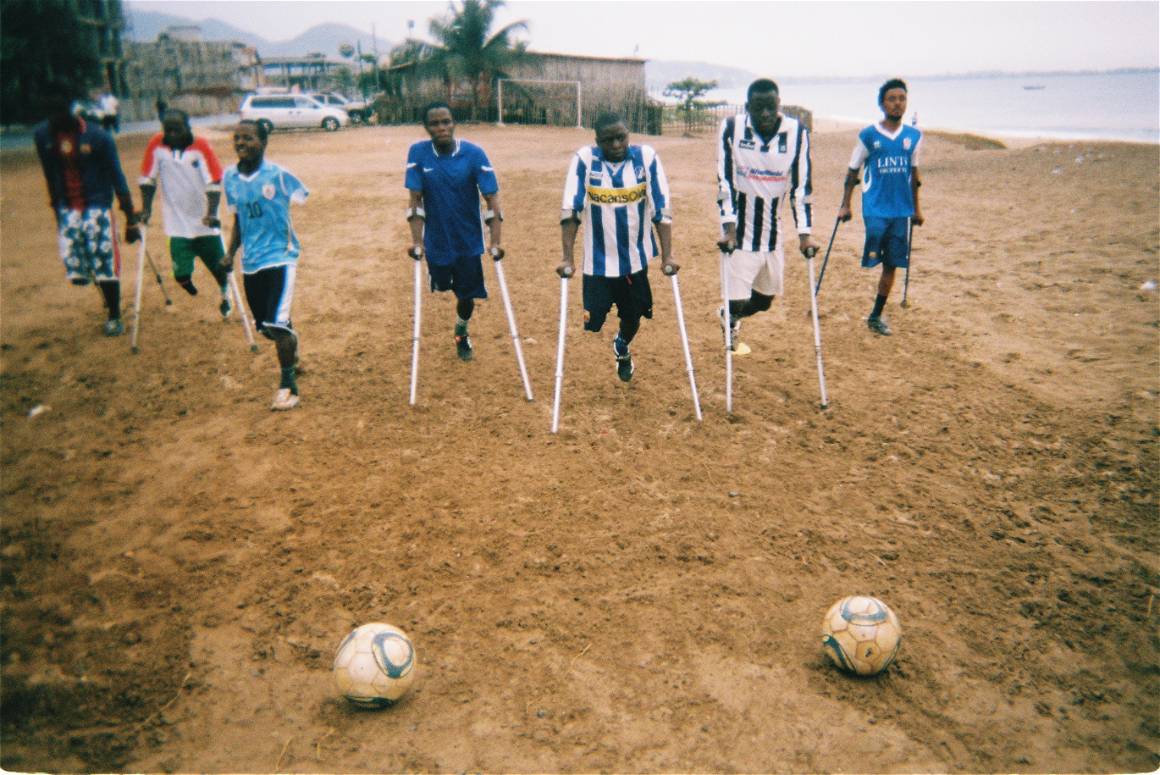
Our Rwandan story is one of the most compelling. The photos tell the story of Eric Murangwa, the goalkeeper of the Rwandan National Team when the 1994 Rwandan Genocide against Tutsi (which killed over 1 million Tutsi and moderate Hutu) broke out. Eric is Tutsi and lost 35 members of his family. The only reason he was spared was because the President of his club was also a Hutu militia leader, later indicted on war crimes. Eric was saved because the President of the club wanted him to play in goal for his team once the Genocide was over. Eric now works between Rwanda and the UK on peace-building initiatives using football, including his organisation Football for Hope, Peace, and Unity (FHPU).
We have worked closely over the past year with Miranda Nild, a striker for the Thailand women’s national team. Miranda was a college student in California until one month before the 2019 Women’s World Cup – and had to train on her own or with boys’ teams to prepare for the tournament, all while writing a thesis on American attitudes to sex work. Unfortunately, she was part of the Thai team that lost 13-0 to the USA. We created our first ever Goal Click short film with her, documenting her experiences before and during the World Cup. She epitomises the current state of the women’s game globally – the lack of support, infrastructure and resources for the women’s game in many countries, and the financial challenges to succeeding as a professional women’s footballer.
Our recent Goal Click Refugees series in partnership with UNHCR, The UN Refugee Agency, contained some incredible stories from female refugees, in particular from Syrian girls in Zaatari refugee camp in Jordan and four Afghan girls in Austria and Australia. Their stories of breaking down barriers and overcoming resistance from their families and community to them playing football are very inspiring. We are constantly amazed by their resilience and courage to play and also become football managers, coaches, and referees.
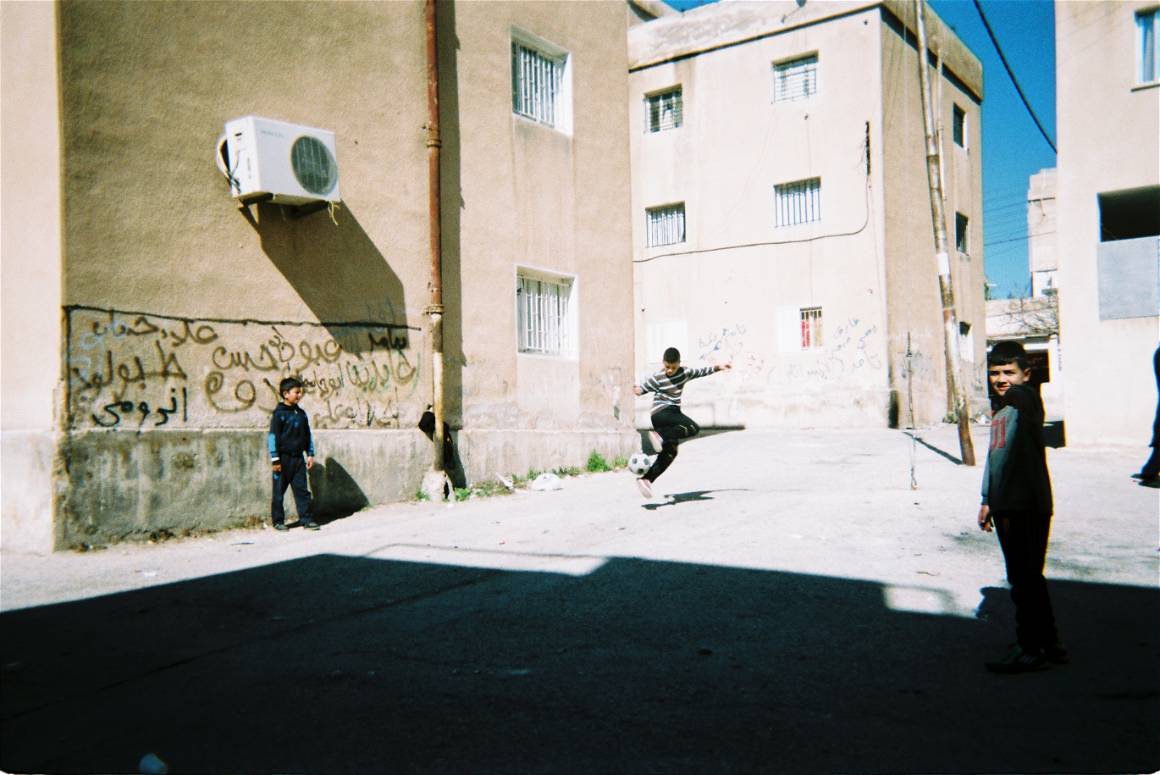
We would love for you to reflect back on some of the highlights from the Goal Click history.
Receiving our camera back from North Korea after FOUR years was a definite highlight!
The packed room at the launch event for our exhibition with adidas in June 2016 will always be a special moment, realising that we had created a viable project from just one simple idea.
Our collaboration with the New York Times for the 2019 Women’s World Cup – and six-page spread in the newspaper – remains the standout piece of media coverage and a huge highlight.
Hosting exhibitions and spending time in Russia (2018 World Cup), France (2019 Women’s World Cup), and Qatar (2019 FIFA Club World Cup) were also great moments for Goal Click.
Lastly, we are very proud to have created partnerships with world-leading organisations such as adidas, FIFA, UEFA, and The UN. The calibre of these partnerships validates everything that Goal Click is trying to do.
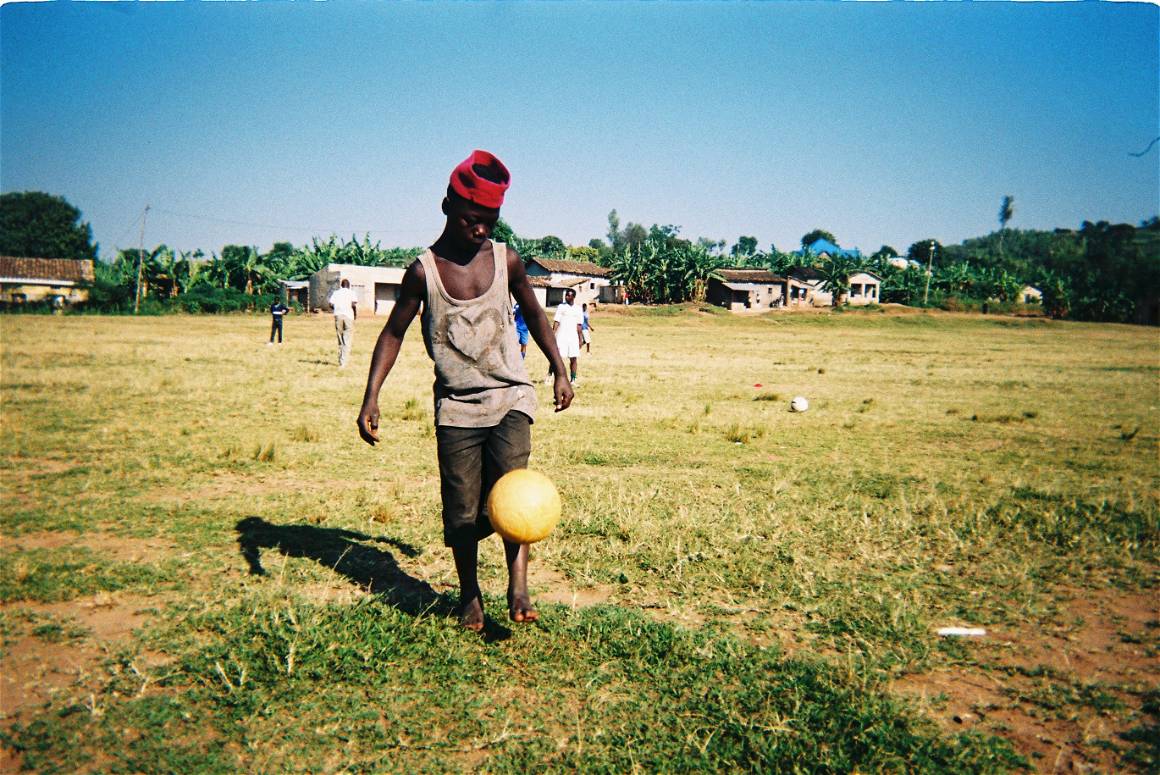
And also any lows?
There have not been many lows. Personally, trying to juggle my full-time job in 2016 and growing Goal Click was reasonably exhausting.
The occasional lost camera can be frustrating, but often quite amusing – Beth Mead lost one of her cameras during the wild celebrations of Arsenal celebrating winning the league!
What project or element of Goal Click has surprised you the most so far?
We are always pleasantly surprised and encouraged by the level of women’s and girls’ football in some countries, where stereotypes suggest there might not be. Our recent collaboration with the Gilgit-Baltistan Girls’ Football League in Pakistan created breath taking images. Our series in Qatar bust myths about the support given to women’s football in the country.
We are always surprised as the lack of efficiency in national postal systems, across every continent. Too many of our cameras go missing, are held in customs, or take incredibly long periods of time to arrive!
It is also clear that WhatsApp has largely conquered the world to an incredible degree. From Syria to Mauritania, everyone has it.
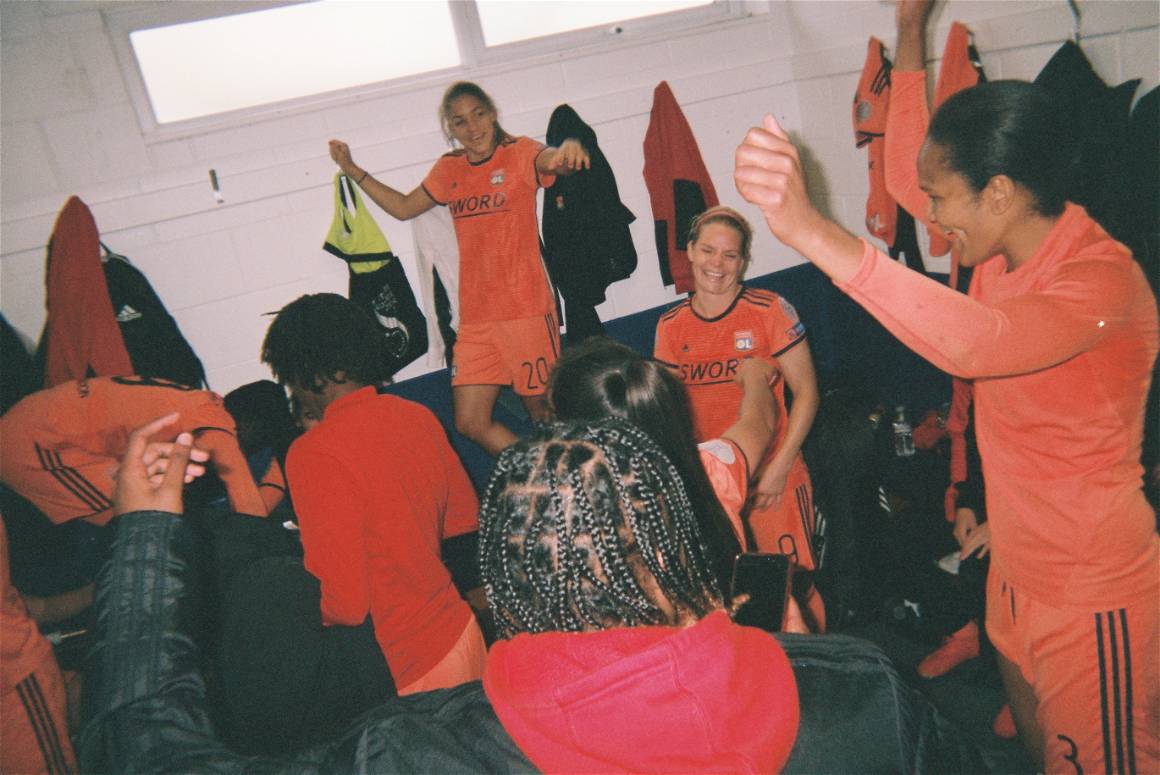
Tell us a little about your partners and donating funds to Common Goal.
We have always worked closely with sport for development organisations – there is a very strong message of football as a tool for social good at the heart of Goal Click. We work closely with streetfootballworld, the global umbrella organisation for football for development charities, and we support their Common Goal fund, which aims to get the entire sports industry to donate 1% of their revenues to a collective fund for these charities. We encourage everyone involved in football to join the movement.
What is the one thing pissing you off currently that inhibits your work?
The obvious answer is COVID-19, which put some of our partnerships on hold. Luckily, we are relatively “COVID-proof” as we do not ever travel or require outsiders or production crews to go into communities. We expect to continue as normal in 2021.
What would you like to be able to do as a company/ brand that you currently aren’t?
Alongside our photography, written stories, and exhibitions, we are currently creating podcasts and developing concepts for short film documentaries. But we were also developing concepts for football storytelling events, which are understandably on hold in 2020.
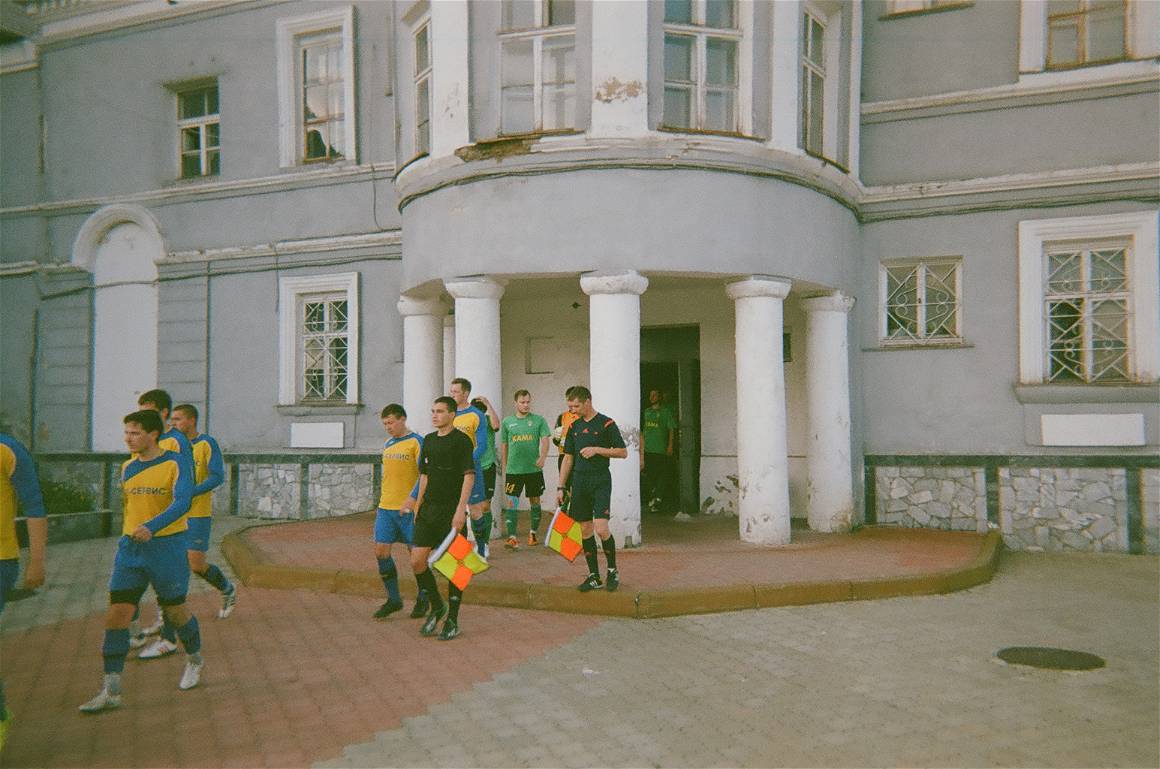
What does the future look like for Goal Click?
The future for Goal Click is to tell our stories in different ways and formats – becoming a genuine multimedia organisation specialising in first person perspective content by adding podcasts, short films, and live storytelling events into our work.
We are of course looking to find new commercial partners (sports organisations, clubs, brands, media companies) to collaborate with on new series.
Goal Click is also exploring moves into new sports (from rugby and boxing to skateboarding and running), so watch this space.
And most importantly we want to continue supporting the inspiring people and charities we work with, including Common Goal and UNHCR.
Find out more and see all their good work at www.goal-click.com


